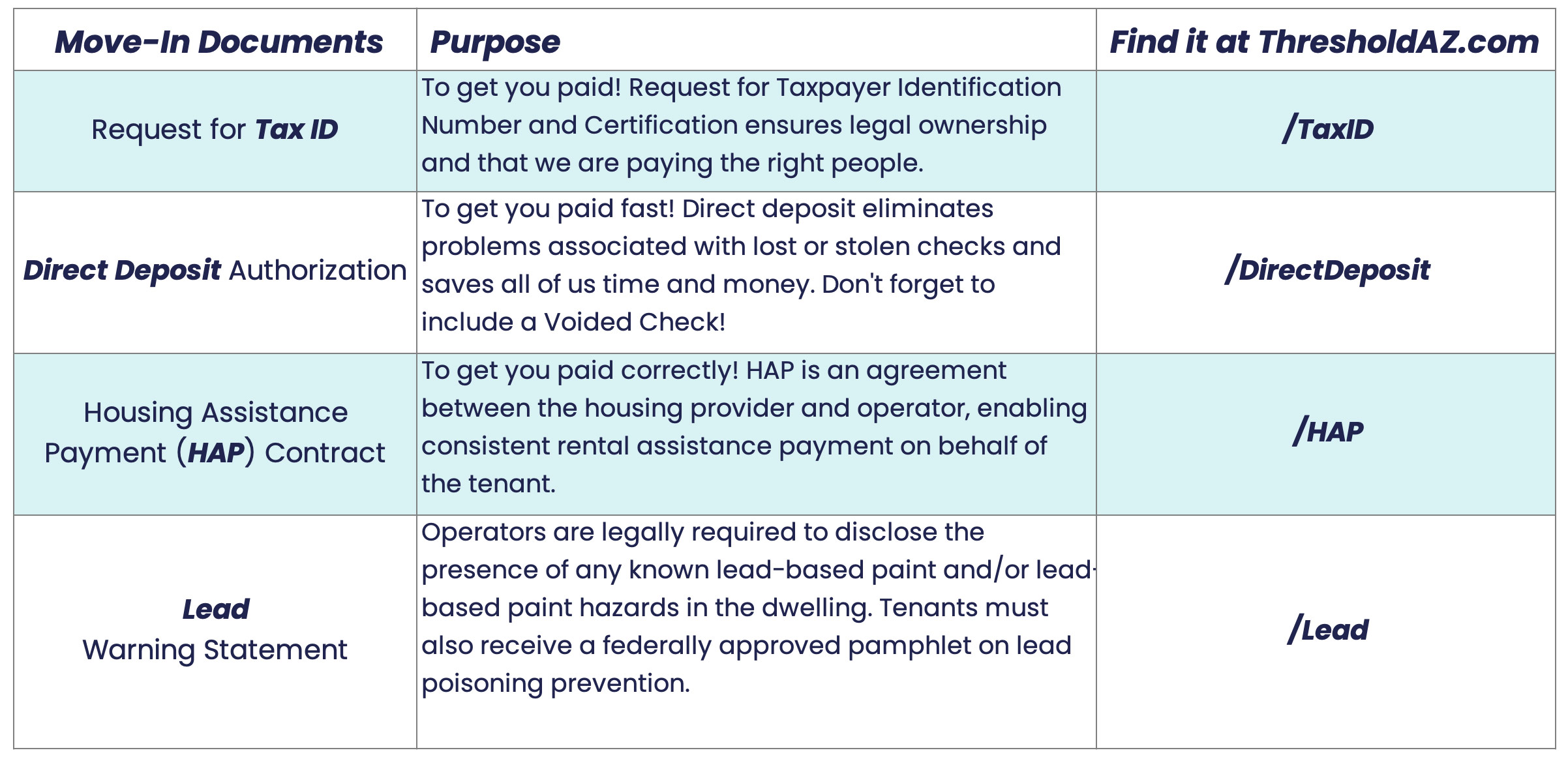The Arizona Residential Landlord and Tenant Act (ARLTA) was enacted in 1973 to establish clear guidelines governing the rental of standard residential properties in the state. The act outlines the rights and responsibilities of both property owners and tenants, promoting fair and equitable housing practices. Unlike other states, Arizona does not have a state agency that enforces these provisions. This means that disputes between property owners and tenants are typically resolved through private negotiations or legal action.
Understanding the ARLTA is crucial for both property owners and tenants to ensure compliance with rental agreements and prevent conflicts. (NOTE: The ARTLA applies to traditional rental properties, such as apartments, houses, and condominiums. It does not cover mobile home parks, which are governed by a separate law.)

If you know the ins and out of the ARLTA, property owners and operators can better protect their investments. In turn, tenants can safeguard their rights and housing stability.
Below, we take a closer look at this important legislation and how it affects the modern-day landlord-tenant relationship.
Rights and Responsibilities of Tenants Under the ARLTA
Tenants in Arizona have specific rights and obligations that are outlined in the ARLTA.
Tenant Rights
Knowing these rights ensures tenants are treated fairly while understanding their responsibilities helps maintain a positive relationship with their property owners or operators.
- Right to a Habitable Home: Property owners and operators must maintain rental properties in a livable condition, including working plumbing, electricity, heating, and air conditioning.
- Privacy Protections: Property owners and operators must provide at least two days’ notice before entering a rental unit unless there is an emergency or work order has been requested by the occupant. (Work orders represent permission to enter when submitted.)
- Fair Housing Protections: Discrimination based on race, gender, disability, family status, or other protected classes is prohibited.
- Security Deposit Limits and Return: Property owners and operators cannot charge more than 1.5 times the monthly rent as a security deposit. They must also return any refundable portion within 14 business days after the lease ends.
- Remedies for Landlord Violations: If a landlord fails to uphold their obligations, tenants may have legal options. This can include requesting repairs, withholding rent in specific cases, or terminating the lease.
Tenant Responsibilities
By adhering to these rights and responsibilities, tenants can ensure they are compliant with Arizona law.
- Paying Rent on Time: Timely rent payments are required, and Arizona law does not permit tenants to withhold rent due to landlord disputes.
- Maintaining the Property: Tenants must keep the rental unit clean, dispose of trash properly, and use utilities responsibly.
- Following Lease Terms: Tenants must abide by the lease agreement, which includes rules on occupancy, pets, and property use.
- Notifying the Landlord of Issues: Tenants must promptly report any repairs needed or safety concerns. As well as allowing access when provided a 48-hour written notice to ensure repairs can be completed.
- Respecting Neighbors: Noise disturbances and disruptive behavior can lead to lease violations or eviction proceedings.

Tenants in Arizona have specific rights and obligations.
Rights and Responsibilities of Property Owners Under the ARLTA
Property owners and operators in Arizona also have specific rights and obligations under the ARLTA. The act is designed to protect their property investments while ensuring tenants have a safe and habitable living environment.
Property Owner Rights
Understanding these provisions helps property owners be in compliance with the law, minimize disputes, and maintain a stable rental business.
- Collecting Rent and Security Deposits: Property owners and operators have the right to receive rent on time and collect a security deposit, which may not exceed 1.5 times the monthly rent.
- Property Access: Property owners and operators can enter the rental unit for necessary inspections, repairs, or showings, but they must provide at least two days’ notice unless it’s an emergency.
- Lease Enforcement: If a tenant violates lease terms, such as failing to pay rent or damaging the property, the landlord has the right to issue a notice and potentially start the eviction process.
- Mitigating Risk Through Lease Agreements: Property owners and operators can set reasonable rules for the property, including restrictions on smoking, pets, and subleasing, as long as they comply with state and federal laws.
Property Owner Responsibilities
By adhering to these responsibilities, property owners can maintain positive relationships with tenants while protecting their rental properties.
- Providing a Habitable Rental Unit: The property must meet health and safety standards, including working plumbing, electricity, heating, and air conditioning.
- Making Necessary Repairs: Property owners and operators must address maintenance issues in a timely manner, especially those that affect the tenant’s health and safety.
- Handling Security Deposits Properly: Security deposits must be returned within 14 business days after the tenant vacates, minus any allowable deductions for damages beyond normal wear and tear.
- Following Proper Eviction Procedures: If eviction is necessary, property owners and operators must follow Arizona’s legal process, including issuing the appropriate notice and obtaining a court order before removing a tenant.
- Fair Treatment of Tenants: Property owners and operators cannot discriminate against tenants based on race, religion, disability, family status, or other protected categories under fair housing laws.
Complying with the ARLTA reduces legal risks and fosters a professional and fair rental environment.
Learn more about Threshold’s risk mitigation guidelines

For property owners and operators, the ARLTA is designed to protect their investments.
Evictions
Evictions in Arizona must follow strict legal procedures outlined in the ARLTA. Both property owners and tenants should understand their rights and responsibilities in eviction situations.
Most Common Reasons for Eviction
There are various scenarios which can result in an eviction, but these are the most common in Arizona:
- Nonpayment of Rent: If a tenant fails to pay rent, the landlord can issue a 5-day notice to pay or vacate. If the tenant does not pay, the property owner or operator may file for eviction in court.
- Lease Violations: If a tenant violates lease terms (such as having unauthorized pets, causing damage, or engaging in illegal activities), the property owner or operator can issue a 10-day notice to comply or vacate for curable violations. Serious violations may lead to immediate termination.
- Health and Safety Violations: If a tenant’s actions create health or safety hazards, the property owner or operator may issue a 5-day notice to correct the issue or vacate.
- Holding Over After Lease Expiration: If a tenant remains in the rental unit after the lease has ended without landlord approval, they may face a notice to vacate and legal action.
The Eviction Process
Property owners and tenants should be aware of how the eviction process works in Arizona:
- Notice to the Tenant: The property owner must provide the appropriate written notice (5-day, 10-day, or other required notice) to the tenant explaining the reason for eviction.
- Filing a Lawsuit: If the tenant does not resolve the issue or move out, the property owner or operator can file an eviction complaint in an Arizona Justice Court.
- Court Hearing: The tenant has the right to attend the hearing and present a defense. If the court rules in favor of the property owner or operator, the tenant may be ordered to vacate.
- Writ of Restitution: If the tenant does not leave voluntarily, the court may issue a writ of restitution, allowing law enforcement to remove the tenant.
Tenant Defenses Against Eviction
Here are the most common tenant defenses against a potential eviction:
- Improper Notice: If the property owner or operator did not follow the correct notice procedure, the eviction may be dismissed.
- Retaliation or Discrimination: If a tenant can prove the eviction was in retaliation for exercising legal rights (e.g., requesting repairs) or based on discrimination, the eviction may be illegal.
- Landlord Fails to Maintain the Property: If the property owner or operator has failed to provide habitable living conditions, tenants may use this as a defense.
Legal Remedies for Tenants
Tenants have a few avenues for assistance in dealing with a pending eviction:
- Seeking Legal Aid: Tenants facing eviction may seek assistance from organizations such as Community Legal Services or Arizona Tenants Advocates.
- Negotiating with the Landlord: Tenants may be able to reach an agreement with the landlord to pay overdue rent or fix lease violations.
- Filing a Counterclaim: If the landlord has failed in their duties, the tenant may be able to file a legal claim against them.

The Arizona Residential Landlord and Tenant Act (ARLTA) sets clear guidelines for residential rental properties in the state.
Resolving Landlord-Tenant Disputes
Disputes between property owners and tenants can arise over repairs, security deposits, lease violations, or other issues. Arizona law provides several ways to resolve conflicts fairly.
Common Disputes and How to Handle Them
By understanding these dispute resolution options, property owners and tenants can navigate conflicts while protecting their legal rights.
- Security Deposit Disputes: If a property owner or operator withholds a deposit unfairly, the tenant can request a detailed itemized list of deductions. If necessary, they have the option of taking legal action.
- Repair Issues: If the property owner or operator refuses to make necessary repairs, the tenant may have legal remedies. This can include withholding a portion of rent, arranging for repairs, or terminating the lease under ARLTA guidelines
- Rent Increases: Arizona law does not limit rent increases. However, property owners and operators must provide 30 days’ notice for month-to-month leases. Sudden increases in retaliation for complaints may be illegal.
- Unauthorized Entry: If a property owner or operator enters without proper notice, the tenant can issue a written complaint or take legal action.
Steps for Resolving Disputes
If you’re caught in a dispute, try these tips to alleviate the situation.
- Open Communication: The first step in resolving disputes is for tenants and property owners to communicate directly and attempt to find a solution.
- Document Everything: Both parties should keep records of rent payments, repair requests, notices, and any agreements made in writing.
- Written Notices: If informal discussions do not work, tenants should send written requests for repairs or concerns. Tenants should keep copies for their records.
- Mediation Services: Local mediation programs, like those offered by Arizona housing agencies, can help property owners and tenants negotiate a solution.
- Filing a Complaint: Tenants can file a complaint with the Arizona Department of Housing or local housing authorities for unresolved habitability issues.
- Taking Legal Action: If necessary, tenants can file a lawsuit in Small Claims Court (for claims up to $3,500) or Justice Court to recover damages or enforce their rights.

Arizona provides various resources to assist both property owners and tenants in understanding their rights.
Resources for Property Owners and Tenants
Arizona provides various resources to assist property owners and tenants in understanding their rights, resolving disputes, and accessing legal aid.
State and Local Government Resources
- Arizona Attorney General’s Office: The Arizona AG’s Office offers guidance on landlord-tenant laws and handles complaints related to housing discrimination.
- The Arizona Department of Housing: The Arizona Department of Housing provides information on tenant rights, fair housing laws, and rental assistance programs. You can also view/download the ARLTA as a PDF.
- Local Housing Authorities: Each city or county has a housing authority that manages rental assistance programs and housing inspections. (Examples: Phoenix Housing Department, Tucson Housing & Community Development)
Legal Help for Property Owners and Tenants
- Arizona Tenants Advocates: Arizona Tenants Advocates offers tenant education, lease review, and advocacy for renters facing disputes.
- Community Legal Services (CLS): Community Legal Services provides free legal help for low-income tenants facing eviction, unsafe housing conditions, or discrimination.
- State Bar of Arizona – Lawyer Referral Service: The State Bar of Arizona helps property owners and tenants find qualified attorneys for housing-related legal matters.
Mediation and Dispute Resolution
- Arizona Dispute Resolution Programs: Many counties offer mediation services to help property owners and tenants resolve conflicts without going to court.
- Justice Court Mediation: Some Arizona Justice Courts provide free mediation before eviction hearings, allowing both parties to negotiate an agreement.
Tenant Rights Organizations
- HUD Fair Housing Information: The U.S. Department of Housing and Urban Development provides fair housing resources and complaint filing services.
- National Low Income Housing Coalition: The National Low Income Housing Coalition advocates for affordable housing policies and tenant protections.
By utilizing these resources, property owners and tenants can better navigate rental housing issues, understand their rights, and access necessary assistance.














